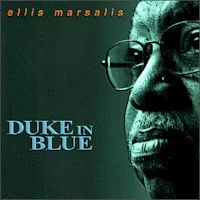Time: 60:04
Size: 137.5 MB
Styles: Piano/Saxophone jazz
Year: 1997
Art: Front
[ 6:00] 1. I'll Remember April
[11:01] 2. Lover Man
[ 9:10] 3. Sweet And Lovely
[11:21] 4. I Can't Get Started
[ 7:39] 5. Out Of Nowhere
[ 8:21] 6. Don't Blame Me
[ 6:29] 7. I Want To Be Happy
Alto Saxophone – Lee Konitz; Double Bass – Jay Anderson; Drums – Billy Drummond; Piano – Paul Bley. Recorded April 1997.
Alto saxophonist Lee Konitz began his more than 50-year career studying with Lennie Tristano and soloing with the Claude Thornhill orchestra and the Miles Davis Nonet before stepping out on his own. His distinctive sound, often described as chilly and dry, and his anti-establishment, modal harmonic improvisations offer the listener a comfortable session containing pleasant lyrical melodies and refreshing colors.
Pianist Paul Bley started his career at about the same time as Konitz, attending the Juilliard School of Music, then working with Charles Mingus, Jackie McLean, Chet Baker, Sonny Rollins, Don Ellis, Jimmy Giuffre, and other jazz legends. His career has afforded Bley the opportunity to form associations with many jazz artists while carving out his own niche, usually described as "avant-garde jazz" with preference for leaving enough space between the notes to allow their beauty to shine through. Supporting Konitz and Bley on this session are bassist Jay Anderson and drummer Billy Drummond.
The SteepleChase label, from Denmark, has issued well over a dozen sessions for Paul Bley – this one is relaxed, with each of these four artists contributing improvisational space. The tunes, mostly familiar easy-to-recognize standards, average eight to nine minutes per track. Drummond lays out on "Lover Man" so that Konitz and Bley may express the piece the way it was intended. Applying lyrical phrases, both leaders present extended solos: Bley with a light touch, keeping the harmony close and maximizing the use of space; Konitz equally light and dry, carrying the lyrics along as if singing them. Similarly, the Vernon Duke classic "I Can't Get Started" is presented slowly and deliberately, with Drummond using brushes; it's an opportunity for Bley to stretch a little.
The moderately paced "Sweet and Lovely" includes fours with Drummond; suiting the mood of the album he is spare in his use of the cymbals here and elsewhere. Instead, the percussionist opts to lay down crisp rolls, moving from one drum to another, slowing down to allow each stroke its distinct pulse. "Don't Blame Me" is a loping ballad presented in blues fashion, with occasional dissonance to keep the perspective clear. Konitz and Bley are unique artists with a sound few can copy, who stroll easily between avant-garde and straight-ahead standards. Recommended. ~Jim Santella
Alto saxophonist Lee Konitz began his more than 50-year career studying with Lennie Tristano and soloing with the Claude Thornhill orchestra and the Miles Davis Nonet before stepping out on his own. His distinctive sound, often described as chilly and dry, and his anti-establishment, modal harmonic improvisations offer the listener a comfortable session containing pleasant lyrical melodies and refreshing colors.
Pianist Paul Bley started his career at about the same time as Konitz, attending the Juilliard School of Music, then working with Charles Mingus, Jackie McLean, Chet Baker, Sonny Rollins, Don Ellis, Jimmy Giuffre, and other jazz legends. His career has afforded Bley the opportunity to form associations with many jazz artists while carving out his own niche, usually described as "avant-garde jazz" with preference for leaving enough space between the notes to allow their beauty to shine through. Supporting Konitz and Bley on this session are bassist Jay Anderson and drummer Billy Drummond.
The SteepleChase label, from Denmark, has issued well over a dozen sessions for Paul Bley – this one is relaxed, with each of these four artists contributing improvisational space. The tunes, mostly familiar easy-to-recognize standards, average eight to nine minutes per track. Drummond lays out on "Lover Man" so that Konitz and Bley may express the piece the way it was intended. Applying lyrical phrases, both leaders present extended solos: Bley with a light touch, keeping the harmony close and maximizing the use of space; Konitz equally light and dry, carrying the lyrics along as if singing them. Similarly, the Vernon Duke classic "I Can't Get Started" is presented slowly and deliberately, with Drummond using brushes; it's an opportunity for Bley to stretch a little.
The moderately paced "Sweet and Lovely" includes fours with Drummond; suiting the mood of the album he is spare in his use of the cymbals here and elsewhere. Instead, the percussionist opts to lay down crisp rolls, moving from one drum to another, slowing down to allow each stroke its distinct pulse. "Don't Blame Me" is a loping ballad presented in blues fashion, with occasional dissonance to keep the perspective clear. Konitz and Bley are unique artists with a sound few can copy, who stroll easily between avant-garde and straight-ahead standards. Recommended. ~Jim Santella
Out Of Nowhere




















